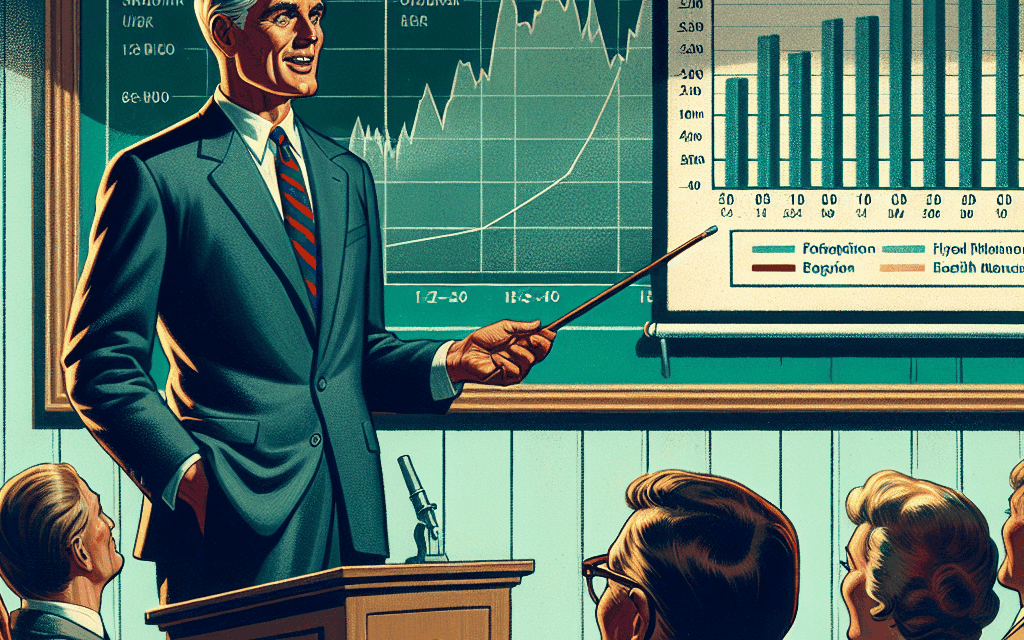CommonSpirit CFO Daniel Morissette Announces Retirement
In a significant development within the healthcare sector, Daniel Morissette, the Chief Financial Officer (CFO) of CommonSpirit Health, has announced his retirement. This news has sent ripples through the industry, prompting discussions about the implications of his departure, the future of CommonSpirit, and the broader landscape of healthcare finance. This article delves into the various aspects surrounding Morissette’s retirement, exploring his contributions, the challenges facing CommonSpirit, and the future of healthcare finance.
1. The Journey of Daniel Morissette at CommonSpirit
Daniel Morissette has been a pivotal figure in the financial management of CommonSpirit Health since its formation in 2019. His journey is marked by a series of strategic decisions that have shaped the organization’s financial health and operational efficiency.
Before joining CommonSpirit, Morissette held various leadership roles in finance across different healthcare organizations. His extensive experience in financial management and strategic planning made him an ideal candidate for the CFO position at CommonSpirit. Under his leadership, the organization has navigated complex financial landscapes, particularly during the COVID-19 pandemic.
Morissette’s tenure at CommonSpirit has been characterized by:
- Financial Restructuring: He played a crucial role in restructuring the financial framework of the organization, ensuring that it could withstand economic pressures.
- Cost Management: Implementing cost-saving measures that did not compromise patient care was a significant focus during his time.
- Investment in Technology: Morissette championed investments in healthcare technology, which have been essential for improving operational efficiency and patient outcomes.
His leadership style has been collaborative, often engaging with other executives and stakeholders to foster a culture of transparency and accountability. This approach has not only enhanced the financial standing of CommonSpirit but has also built trust within the organization.
2. The Impact of Morissette’s Retirement on CommonSpirit
The announcement of Morissette’s retirement raises questions about the future direction of CommonSpirit Health. His departure comes at a time when the organization is facing several challenges, including financial pressures and the ongoing impact of the COVID-19 pandemic.
One of the immediate impacts of his retirement is the potential disruption in financial leadership. CommonSpirit has been navigating a complex financial landscape, and a change in leadership could lead to uncertainty among investors and stakeholders. The organization will need to ensure a smooth transition to maintain confidence in its financial strategies.
Moreover, Morissette’s retirement could affect ongoing initiatives, such as:
- Healthcare Accessibility: CommonSpirit has been focused on improving access to healthcare services, particularly in underserved communities. A change in leadership could impact the momentum of these initiatives.
- Financial Stability: Maintaining financial stability is crucial for any healthcare organization. Morissette’s departure may lead to shifts in financial strategies that could affect the organization’s long-term sustainability.
- Investment in Innovation: The healthcare sector is rapidly evolving, and continued investment in technology and innovation is essential. The new CFO will need to prioritize these areas to keep pace with industry changes.
In summary, while Morissette’s retirement marks the end of an era for CommonSpirit, it also presents an opportunity for new leadership to bring fresh perspectives and strategies to the organization. The challenge will be to build on the foundation he has established while addressing the evolving needs of the healthcare landscape.
3. Challenges Facing CommonSpirit Health
CommonSpirit Health, like many healthcare organizations, faces a myriad of challenges that have been exacerbated by the COVID-19 pandemic. Understanding these challenges is crucial for assessing the implications of Morissette’s retirement.
Some of the key challenges include:
- Financial Pressures: The pandemic has led to increased operational costs and decreased revenues for many healthcare providers. CommonSpirit has had to navigate these financial pressures while ensuring quality patient care.
- Staffing Shortages: The healthcare industry is experiencing significant staffing shortages, which can impact service delivery and patient outcomes. Addressing these shortages is critical for maintaining operational efficiency.
- Regulatory Changes: The healthcare sector is subject to constant regulatory changes, which can create uncertainty and require organizations to adapt quickly to new compliance requirements.
In addition to these challenges, CommonSpirit must also contend with:
- Technological Advancements: The rapid pace of technological change in healthcare necessitates ongoing investment in new systems and processes. CommonSpirit must ensure it remains competitive in this regard.
- Patient Expectations: As patients become more informed and engaged in their healthcare decisions, organizations must adapt to meet these evolving expectations for transparency and quality.
Addressing these challenges will require strong leadership and strategic planning. The new CFO will need to develop innovative solutions to ensure that CommonSpirit can thrive in a post-pandemic world while continuing to fulfill its mission of providing high-quality healthcare services.
4. The Future of Healthcare Finance
The retirement of a key financial leader like Daniel Morissette raises broader questions about the future of healthcare finance. As the industry evolves, several trends are shaping the financial landscape of healthcare organizations.
One significant trend is the increasing focus on value-based care. This model emphasizes patient outcomes rather than the volume of services provided, which requires a shift in financial strategies. Organizations must invest in data analytics and care coordination to succeed in this environment.
Additionally, the integration of technology in healthcare finance is becoming more prevalent. Financial leaders are leveraging advanced analytics and artificial intelligence to improve decision-making and operational efficiency. This trend is likely to continue as organizations seek to optimize their financial performance.
Other key trends influencing the future of healthcare finance include:
- Telehealth Expansion: The pandemic accelerated the adoption of telehealth services, which presents both opportunities and challenges for financial management. Organizations must find ways to effectively bill for these services while ensuring reimbursement.
- Increased Regulatory Scrutiny: As healthcare organizations face heightened scrutiny from regulators, financial leaders must ensure compliance while managing costs and maintaining quality care.
- Focus on Social Determinants of Health: Understanding and addressing social determinants of health is becoming increasingly important for healthcare organizations. Financial leaders must consider these factors in their budgeting and resource allocation decisions.
As the healthcare landscape continues to evolve, financial leaders will play a critical role in guiding organizations through these changes. The new CFO at CommonSpirit will need to be adept at navigating these trends to ensure the organization’s long-term success.
5. Conclusion: Key Takeaways from Morissette’s Retirement
The retirement of Daniel Morissette as CFO of CommonSpirit Health marks a significant transition for the organization and the healthcare industry as a whole. His contributions over the years have laid a strong foundation for the organization, but the challenges ahead are substantial.
Key takeaways from this development include:
- Leadership Transition: The importance of a smooth leadership transition cannot be overstated. CommonSpirit must ensure that the new CFO can build on Morissette’s legacy while addressing the organization’s evolving needs.
- Addressing Challenges: The new leadership will need to tackle ongoing challenges, including financial pressures, staffing shortages, and regulatory changes, to maintain operational efficiency and quality care.
- Embracing Change: The future of healthcare finance is dynamic, with trends such as value-based care and technological advancements shaping the landscape. Organizations must be agile and innovative to thrive.
In conclusion, while Morissette’s retirement signifies the end of an era for CommonSpirit, it also opens the door for new opportunities and strategies. The healthcare industry is at a crossroads, and the decisions made in the coming months will be critical in shaping the future of healthcare finance and delivery.




